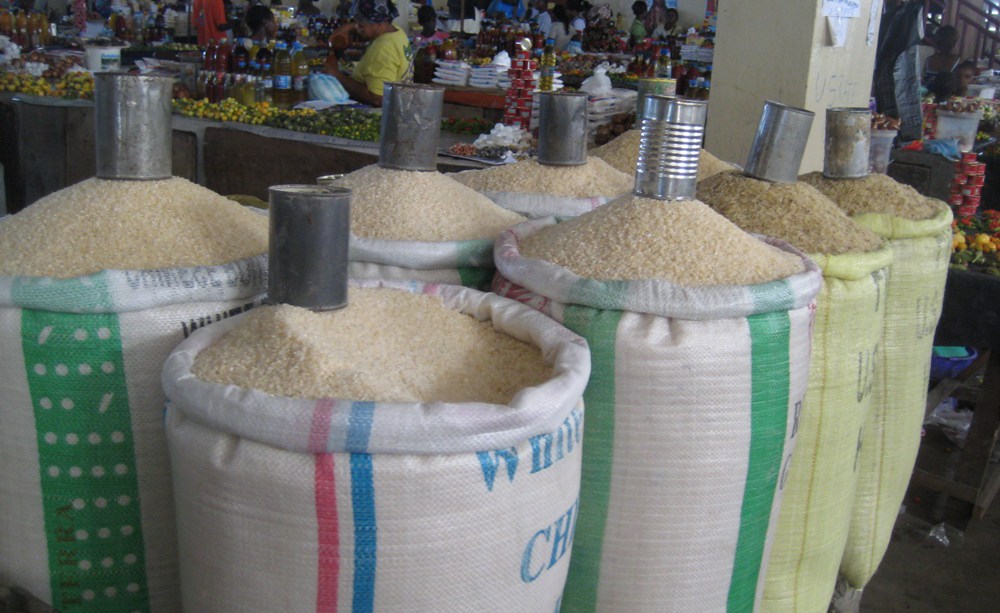
Warnings by some multilateral organisations over worsening food scarcity, no doubt, captured the grim picture of the food security situation in Nigeria that needs to be addressed to avert mass hunger and starvation in the country.
The warning should not be unduly politicised or undermined because the signs of a food crisis are already glaring and reflected in the high cost and sometimes scarcity of some food items.
Meat, for instance, is being priced out of the reach of the common man. Concern about deficient food production is mounting, particularly, against the backdrop of worsening insecurity in virtually all the states of the federation.
The leaders of the World Bank Group (WBG), International Monetary Fund (IMF), World Trade Organisation (WTO) and the United Nations World Food Programme (WFP) issued a joint statement ahead of the Spring Meetings of the IMF and WBG. The statement drew attention to the impact of the geopolitical tensions and full-blown war involving Ukraine and Russia, warning that for every one percentage point increase in food prices, 10 million people are thrown into extreme poverty.
The leaders also disclosed the efforts they are making to ease the pressure while calling on the international community to support vulnerable countries through grants to cover urgent financing needs. These according to them include emergency food supplies, deployment of financial support to households and countries, facilitation of unhindered trade as well as investment in sustainable food production as some of the measures they have taken to support the move for food security.
“The world is shaken by compounding crises. The fallout of the war in Ukraine is adding to the ongoing COVID-19 pandemic that has entered its third year, while climate change and increased fragility and conflict pose persistent harm to people around the globe. Sharply higher prices for staples and supply shortages are increasing pressure on households worldwide and pushing millions more into poverty,” the statement said.
It warned that the current threat is highest for the poorest countries which depend on importation for food supply even as “vulnerability is increasing rapidly in middle-income countries, which host the majority of the world’s poor.” As the organisations observed, the rise in food prices is worsened by a dramatic increase in the cost of natural gas – a key ingredient of nitrogenous fertilizer; and surging fertiliser prices along with significant cuts in global supplies have serious implications for food production in most countries, especially those who rely on fertilizer imports.
Over the years, Nigeria has spent billions importing basic foods from other countries, a situation made worse by the virtual war situation across the nation spearheaded by Boko Haram insurgency, banditry, kidnappings/abductions and raping of women on farms all of which have together dealt a massive blow to food production.
Following the killings and destruction of dwellings in many parts of the country by Boko Haram as well as killer herdsmen who let their herds trample freely on farms, farmers have abandoned their farms. Even in parts of the south, villagers are being turned into refugees, seeking safety and protection. Farmers have turned to beggars in refugee camps. The development is double jeopardy for the weary folks, the majority of who now depend on food handouts in Internally Displaced Persons (IDP) camps. This, alone, creates more despair among the populace as the attacks persist and succour is not in sight. It is such a desperate situation.
For instance, in November 2020, about 76 peasant farmers were gruesomely massacred by Boko Haram in Borno State. The terror group said the attacks were carried out in retribution for farmers cooperating with the Nigerian military. Even at that, the presidency, in an absurd response, blamed the farmers for not getting clearance from the military before going to their farms, as if such clearance had previously been a precondition for going to farms.
Furthermore, reports say no fewer than 78,000 farmers in Borno, Katsina, Taraba, Plateau and other states in the north have abandoned their farmland as a result of attacks by Boko Haram terrorists, bandits and herdsmen. About 56,000 Internally Displaced Household (IDH) farmers from 28 communities in Borno State, who reportedly cultivated about 95,000 metric tonnes of crops yearly, have lost no less than 504,000 metric tonnes of food since 2015. No fewer than 56,000 farmers in Borno State alone had been displaced, while about 1.5 million people are currently taking refuge at 24 Internally Displaced Person camps.
What is happening in Borno and other northern states is gradually but steadily being replicated in the southern states, as farmers are being abducted, killed or driven away from their farms in Ogun, Ondo, Oyo and Edo states, among others. Women are reportedly raped while some are killed. The affected farmers are helplessly bemoaning their misfortune.
There is, no doubt, that the tide of insecurity is dealing a big blow to food production in the country. Both the federal executive, led by President Muhammadu Buhari, and the National Assembly have the onerous duty to enable a change in the country’s security system. The present set-up is grossly deficient and would sooner than later lead to an unpleasant disintegration of the country. The country’s security apparatus needs to be decentralised and states allowed to take charge of the security of their domain, as a precursor to achieving a seamless farming output.
END

Be the first to comment